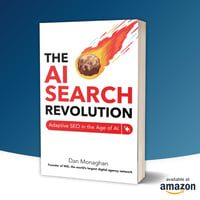The rapid progress of artificial intelligence (AI) is changing industries and work environments across the globe. Understanding and using AI’s power is very important for digital marketers and business owners. As AI becomes more deeply integrated into our everyday work processes, the importance of education to utilize its potential correctly increases.
In this post, we will explore the significance of continuous learning in the AI era and its pivotal role in driving success for individuals and brands in a rapidly evolving technological landscape.
What Are the Numbers Saying?
With AI rapidly progressing, experts and apprentices must adapt with fresh tools and techniques. The adjustment isn’t only about learning technical abilities; it means creating a mindset receptive to constant learning and innovation.

In WSI’s AI Business Report, 69% of respondents said they had not taken any form of AI training in 2023 or 2024. 62% of respondents also said they are not familiar with or are only slightly familiar with AI and its business applications. 55% of respondents mentioned a lack of in-house understanding or technical expertise in AI as the primary reason why they hadn’t already implemented AI tools or strategies into their business.
These results signal an opportunity for businesses to get ahead of their competition by investing in AI training and education for their employees, empowering them to drive growth and sales. If you want to learn more about the numbers in our AI Business Report, then download it today!
👉👉 Download the AI Business Insights Report 👈👈
AI’s Transformative Potential and Addressing the Skills Gap
The effects of AI in workplaces are significant. It promises to change how we complete tasks, enhancing efficiency and enabling us to accomplish more with less effort. However, understanding AI’s power puzzles many experts and business owners. This gap in knowledge highlights the need for comprehensive education in AI.
AI systems are becoming more innovative and more natural in their human interactions. You can use them by talking like you do to a friend.
AI could serve as an essential “co-pilot” in our learning, offering data, understanding, and tools to increase knowledge and efficiency. It can adjust its assistance according to how fast we learn or comprehend things, making it a perfect companion for continuous education.
If anything, AI’s sudden emergence highlights the significance of learning throughout life. Whether you are a beginner apprentice or an experienced worker, the rapid rise of AI has required ongoing enhancement of your abilities and information. This is where ongoing education becomes crucial.
The Role of Managers and Educators
Managers and educators should understand that clients and employees come with pre-loaded biases and expectations from their dealings with AI. In our AI Business Insights Report, 46% of respondents expressed challenges in AI comprehension and education. A mutual reliance on trust and community dedication is necessary to combine AI experiences with technical understanding in a responsible manner.
Managers need to prepare for a workforce where continuous learning is promoted and AI is seen as complementing human abilities instead of substituting them.
AI’s inclusion in the workplace is unavoidable, but it won’t make human abilities useless. It will improve our work and transform our ongoing learning process. Here are the main reasons why continuous education is crucial in this new age:
- Complementarity between AI and Human Skills: AI is highly proficient in automating tasks and handling large quantities of data, but it cannot reproduce human judgment, creativity, empathy, or contextual comprehension. That means that humans can collaborate with AI in a way that is greater than the sum of its parts to address complex difficulties and innovate efficiently.
- Adaptability in a Rapidly Evolving Job Market: AI has quickly changed the job market. To stay competitive in this changing environment, professionals must be ready with new skills and different roles. Continuous learning is essential for maintaining your position and taking advantage of opportunities in the digital economy.
- Developing Interdisciplinary Skills: Having skills from different fields and mixing those technical abilities with communication, creativity, and critical thinking will make professionals more likely to do well in future jobs. Continuous learning helps us build these essential skills, which will become necessary for our organizations.
- Stimulating Innovation and Creativity: Ongoing learning, which brings in fresh thoughts and viewpoints, supports the growth of innovation and creativity. By maintaining a learning mentality for life, we can develop inventive solutions to problems in our industries and communities.
Strategies for Continuous Learning
To get the most from AI, here are some practical strategies to make continuous learning part of your life:
- Adopt a Growth Mindset: Have faith in your potential to understand and advance. View difficulties as opportunities for development, and be ready to leave your comfort zone. A growth mentality is crucial for handling the intricacies of AI and technology.
- Plan Your Professional Development: Recognize the abilities required to succeed in your ideal position, then devise a strategy to gain them. Establish understandable, attainable study goals and check frequently how well you are doing to keep yourself on the right path.
- Leverage Online Resources: Take advantage of the many resources available online. Courses, webinars, tutorials, and articles can help you keep up with trends in your field and acquire new abilities at a pace that suits you. There’s a firehose of information waiting for you!
- Attend Events and Conferences: Work gatherings, meetings, professional events, and conferences are essential for making connections, gaining knowledge from industry leaders, and staying updated with new ideas. Be mindful and schedule these events in your calendar regularly. Communicate with influential people within your area of expertise and make those connections.
- Collaborate with Others: Learn from your peers and share your knowledge in collaborative projects, discussion groups, and professional communities. Working together to understand things better can provide different views and improve understanding.
- Reflect and Evaluate: Reflect on your learning process, evaluate what you have accomplished, and pinpoint where you need to improve. Use this understanding to adapt your career growth plan and maintain progress.
Creating a Continuous Learning Culture
For companies and teams, it is crucial to develop a culture of constant learning to handle the challenges and opportunities brought by AI. In our AI Business Insights Report, 22% of respondents said they were concerned about change management for AI integration, meaning they felt the need for more AI resources in their organizations.
These are the main steps you can take to create a continuous learning culture in your organization:
- Make Learning a Priority: Invest in learning and development materials, like training courses or workshops. By prioritizing learning opportunities, you will show that you are dedicated to your workers’ improvement and success.
- Cultivate Curiosity: Foster a culture of curiosity among the workforce, encouraging workers to explore new ideas and gain knowledge. Encourage open discussions, brainstorming sessions, and departmental collaboration to enhance curiosity.
- Make Learning Accessible for All: Give all workers opportunities to learn, no matter what they do or their level within the business. Provide different kinds of learning, like official study programs, online classes, and guidance from mentors.
- Recognize and Reward Learning: Give credit to and rejoice in learning attempts and accomplishments. Set up systems for acknowledging and giving rewards so workers are inspired to keep improving themselves.
- Set Clear Learning Goals: Make sure that learning goals are specific, measurable, achievable, relevant, and time-bound. Connect individual goals with overall team and organizational objectives to create a sense of purpose in learning activities.
- Establish a Culture of Feedback: Create a safe space where feedback is welcomed and viewed as an opportunity for growth. Make it natural to learn from mistakes and encourage frequent self-reflection on advancement and areas needing improvement.
- Celebrate Learning Successes: Appreciate and celebrate when learning is successful to strengthen the importance of ongoing learning. Share stories about achievements and knowledge gained to motivate others to adopt a mindset of constant learning.
- Make Learning Engaging: Gamification, team challenges, and technology-based tools can make the process more enjoyable and effective.
With AI constantly changing our world, the significance of education and ongoing learning is enormous. A mindset for lifelong learning gives people and groups power, helping them handle the intricacies of this era with AI and excel in an ever-changing competitive environment.
Business owners and team leaders should fully use AI’s potential by investing in education, promoting interdisciplinary skills, and encouraging a curious and creative environment.
Contact WSI today if you need a digital marketing expert to guide you on this journey.

Jukka founded WSI Web Enhancers in 2012. His progressive and pioneering SEO approaches help businesses increase traffic while improving conversion rates. As an accomplished digital marketing authority, he spins effective web design, SEO, and social media engagement into winning strategies for local and national companies.






